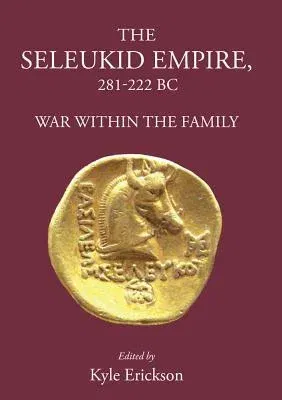The Seleukid Empire 281-222 BC: War Within the FamilyHardcover, 30 September 2018

Qty
1
Turbo
Ships in 2 - 3 days
In Stock
Free Delivery
Cash on Delivery
15 Days
Free Returns
Secure Checkout

Print Length
322 pages
Language
English
Publisher
Classical Press of Wales
Date Published
30 Sep 2018
ISBN-10
1910589713
ISBN-13
9781910589717
Description
Product Details
Book Format:
Hardcover
Country of Origin:
US
Date Published:
30 September 2018
Dimensions:
23.62 x
15.49 x
2.54 cm
Genre:
Ancient (To 499 A.D.)
ISBN-10:
1910589713
ISBN-13:
9781910589717
Language:
English
Location:
Swansea
Pages:
322
Publisher:
Weight:
748.43 gm